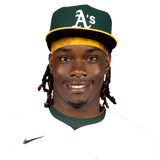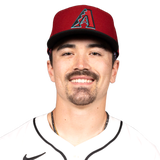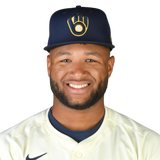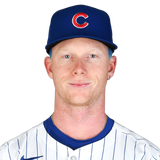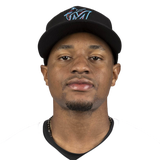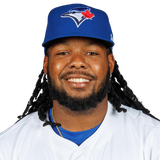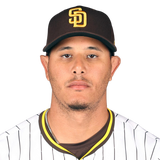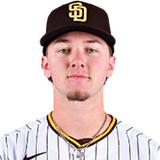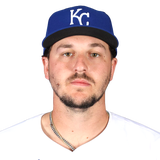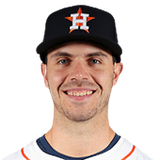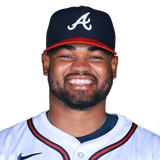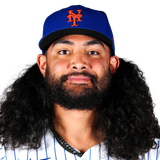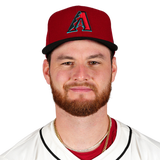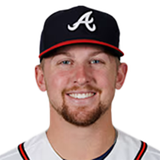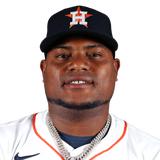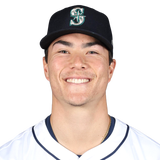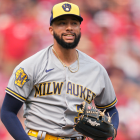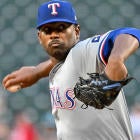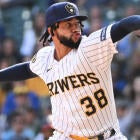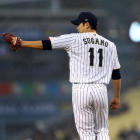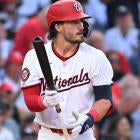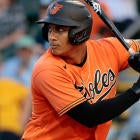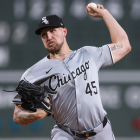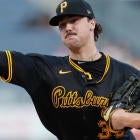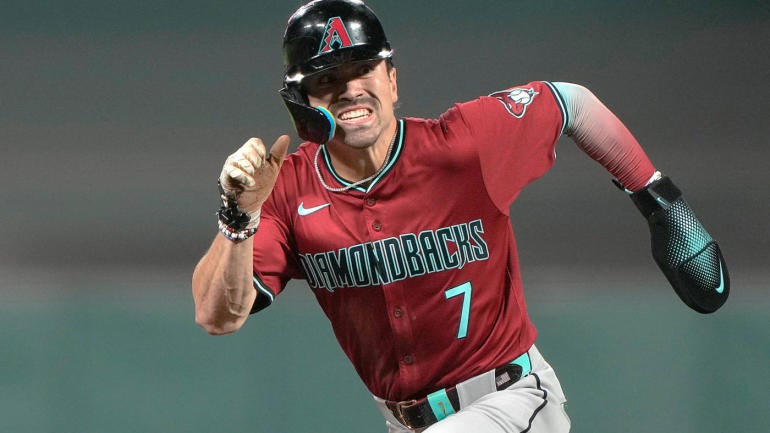
Over the course of a long season, it's easy to develop tunnel vision for your own team, losing sight of what's happening across the rest of the league. And then when you begin to prepare for next season, you're shocked to discover how high certain players rank.
Well, don't let these 20 shock you. To me, they're the ones who've improved their stock the most since the All-Star break (though in some cases, the turnaround began before then).
You'll find others who've improved their production in the second half, with Oneil Cruz and Jake Burger being a couple examples, but not so much their standing in Fantasy. They'll be drafted exactly how you expect, whether you're clued in or not. The following 10 hitters and 10 pitchers, however, could potentially sneak up on you.
Lawrence Butler always stood out for his exit velocities and athleticism, but it wasn't clear that he'd ever have the bat control to make good on that potential. It's why the most encouraging number during this breakthrough, which really began at the start of July (putting it at 19 home runs and 10 stolen bases), is the 17.8 percent strikeout rate.
| ||||||||||||||||
Corbin Carroll's shoulder troubles during his Rookie of the Year-winning 2023 made for an all-too-convenient excuse when his sophomore season got off to a miserable start, raising concerns that it might even change the trajectory of his career. His second half has not only ended those concerns but also put him back in early-round consideration for 2025. Maybe not Round 1, but Round 3 sounds about right.
| ||||||||||||||||
If the surface-level numbers don't make a convincing enough case, note that Jackson Chourio's average exit velocity has gone from 88.8 mph to 91.1 mph and his strikeout rate from 23.3 percent to 16.1 percent. We should probably get in the habit of waiting until midseason to pass judgment on rookies, particularly those who are all of 20 years old.
| ||||||||||||||||
The more revealing cutoff for Pete Crow-Armstrong would be the start of August, after which he's hit .325 (38 for 117) with five homers, six steals, a .911 OPS, and just a 19.8 percent strikeout rate. That last number is especially important because it seemed like plate discipline could be the defensive whiz's undoing. Crow-Armstrong's quality of contact has also been much improved this year, both in the minors and majors.
| ||||||||||||||||
The first- and second-half splits don't really tell the story here since Xavier Edwards was hardly even in the majors until the second half. He seemed more like organization depth before then, being completely devoid of pop in a league environment that demands it, but his stint as Marlins shortstop has revealed that his slash-and-burn profile, which made him a .347 hitter at Triple-A the past two years, can indeed work in the majors. Shame he won't still be second base-eligible next year.
| ||||||||||||||||
The turning point for Vladimir Guerrero was actually late June, when he went from hitting .278 with seven homers and a .760 OPS in his first 74 games to hitting .367 with 21 homers and a 1.137 OPS in his next 69. Just like that, the best player in Fantasy three years ago is at least the best first baseman again.
| ||||||||||||||||
It took a couple months for Manny Machado to find his swing after having surgery to repair the extensor tendon in his right elbow in the offseason, but from June 1 on, he's been as good as he ever has, batting .301 with 21 homers, six steals and a .900 OPS. Those who thought he was on the decline at age 32 are having to reassess, and the kicker is that next season will be his first in three without any ill effects from the elbow.
| ||||||||||||||||
Jackson Merrill had a .648 OPS as late as June 7, with 20 of his 23 homers coming since then. His second half has solidified him as a rising star in Fantasy and the most impressive of all the rookie hitters, unlikely though it seemed coming into the year, with a low walk rate being the only real flaw in his profile.
| ||||||||||||||||
Playing for the Angels has held back Zachary Neto by limiting his run and RBI totals, but shortstops who can deliver a combined 50 home runs and stolen bases (with three weeks to go still) are rare indeed. The second half is when the 23-year-old really began to pull away, going from also-ran to standout at a deep position. He's a good bet to fill out the top 12 going into next season.
| ||||||||||||||||
Vinnie Pasquantino has and has always had one of the best contact rates for a player who hits the ball as hard as he does, which should theoretically make him a good source of batting average as well as power. There came a point in the first half when seeing was believing, particularly after he flopped in 2023, but his second half was reassuring enough, even with the season-ending thumb injury, to make him one of the top 12 first basemen drafted next year.
| ||||||||||||||||
If not for a disastrous outing Sept. 4 at Cincinnati, Spencer Arrighetti's second-half numbers would look even better, highlighted by three double digit-strikeout efforts in a span of five starts. He was a good strikeout pitcher in the minors, too, but didn't earn particularly high marks because his fastball was nothing special. Between improving his control and making better use of his deep secondary arsenal, his upside is now evident.
| ||||||||||||||||
Bowden Francis only joined the rotation Aug. 12 but has already made a huge impression by allowing a total of six hits over a four-start span, each time going at least seven innings. It's all very sudden for a 28-year-old with little prospect pedigree and is perhaps just a case of his new splitter catching the league by surprise, but it's likely secured Francis a spot in the Blue Jays rotation for next year and is sure to earn him some mid-to-late-round looks in Fantasy.
| ||||||||||||||||
Even if the shoulder tightness that pulled Reynaldo Lopez from his latest start turns out to be a season-ending injury, which seems pretty likely given where we are on the calendar, he made his point and then some following an earlier IL stint for elbow tightness. That injury threatened to end whatever momentum he had, bringing to bear the long-awaited regression, but instead, Lopez showed serious strikeout upside in his return, thus ensuring that he won't simply be an also-ran in 2025 drafts.
| ||||||||||||||||
The more telling breakdown would be Sean Manaea's 2.81 ERA, 0.78 WHIP and 10.9 K/9 in his past eight starts, which apparently began with him lowering his release point to mimic Chris Sale's delivery and was later bolstered by a new changeup grip. These are substantive changes that could have a transformative effect even on a 32-year-old journeyman like him.
| ||||||||||||||||
Ryne Nelson's newfound success may prove to be less than durable since it's mostly contingent on him spamming his fastball (60 percent seems to be the magic threshold), but it's at least made him a near lock to be drafted next year. Before, it wasn't even clear that he belonged in the Diamondbacks rotation.
| ||||||||||||||||
Take out a nine-run disaster on Aug. 26, and Bailey Ober is looking at a 1.70 ERA and 0.62 WHIP in the second half, allowing two hits or fewer in five of eight starts. Between his pristine control and proclivity for weakly hit fly balls, he simply doesn't put men on base and has a strong case to be one of the first 15 starting pitchers drafted next year.
| ||||||||||||||||
He's begun to fade a bit now that he's well over his previous high in innings, but Spencer Schwellenbach has already secured his place as a trendy 2025 breakout candidate by combining elite swing-and-miss tendencies with George Kirby levels of strike-throwing. His six-pitch arsenal makes him plenty adaptable, too.
| ||||||||||||||||
You might argue that the 2023 Cy Young winner always turns his season around in this particularly dramatic way, but with all the adductor problems early on, it really seemed like this might be the year when things didn't suddenly snap back into place. With each passing year, Blake Snell seems to need fewer starts to right the ship, making it all the more likely he'll be drafted as an ace next year.
| ||||||||||||||||
The turnaround for Framber Valdez actually started in his final outing of the first half, when he began featuring his curveball upward of 35 percent of the time to unlock latent swing-and-miss ability. Spamming sinkers has brought him enough success over the years that he may default to it in the long run, but this strikeout uptick forces us to entertain the possibility of him being a top-12 starting pitcher next year rather than top-24.
| ||||||||||||||||
You might point out that the first- and second-half ratios aren't substantially different, but what you're missing, Sherlock, is that Bryan Woo was doing it four innings at a time in the first half, plagued by a recurring forearm issue that made it impossible to take him seriously. His six longest starts of the season have come in the second half, each one exceeding six innings, which to me serves as much stronger confirmation that it's all real.
| ||||||||||||||||


